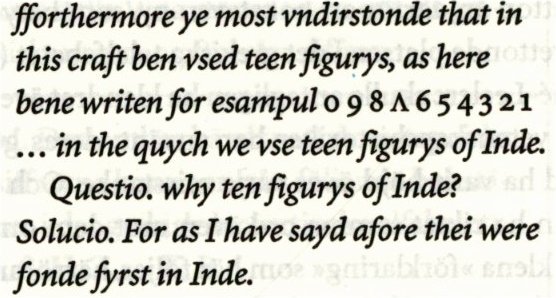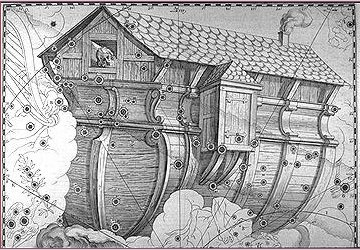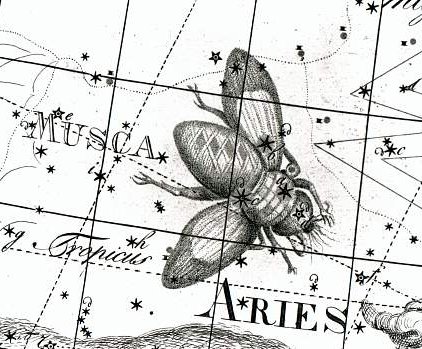In this text (H/P/Q) there is no haś in my compartment denoted c. But in 6a there is a sequence which also is including a pair of honu:
The haś in Hb6-7 is quite similar to that in Hb5-52 (250), although the number of 'feathers' is not 10 but 9:
Clearly one such 'feather' - significantly the 4th - ... Interestingly, since another meaning of shi is 'death', the number 4 is considered unlucky. (For example, the floor numbering in hotels sometimes jumps mysteriously from 3 to 5; it's also considered unlucky to give four of something as a present.) ... has been lost. This is confirmed by Hb6-25. And possibly this could have occurred at glyph number 260:
As to the strange number 313 (instead of the expected 314) the reason might become clear when reading the next glyph:
Because here we can count (hia) 7 * 49 = 343 = 7 * 7 * 7 = 314 + 29. And 74 * 9 = the number of the Beast (666). ... The Beast is a figure in the Book of Revelation, the last book of the New Testament describing an elaborate metaphor. The Beast is an animal with seven heads coming out of a sea who makes himself an enemy of the Christian Church ... The Number of the Beast is described in the Book of Revelation 13:18. From the King James translation: Here is wisdom. Let him that hath understanding count the number of the beast: for it is the number of a man; and his number is Six hundred threescore and six ... But that could very well be a pure coincidence, because the Beast was a great Shape Shifter. For instance is 300 + 366 = 366.
... It rained for 40 days and 40 nights. 172 + 40 + 40 = 252 (*172) → 343 - 91 ...
From 252 to 666 there were 414 days → the leading star in the asterism Musca Borealis.
|
|||||||||||||||||||||||||||||||||||||||||||||||||||||||||||||||||||||||||||||||||||||||||||||||||


















